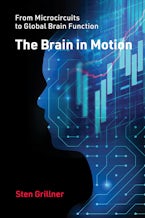Stephen H. Schneider was Melvin and Joan Lane Professor for Interdisciplinary Environmental Studies and Professor of Biology at Stanford University. He was also Coordinating Lead Author of the IPCC's working group on Impacts, Adaptation, and Vulnerability, from 1997 to 2001, and, with his IPCC colleagues, was awarded a joint Nobel Prize in 2007. He was the author or editor of many books, including Science as a Contact Sport: Inside the Battle to Save Earth's Climate and Scientists Debate Gaia: The Next Century (MIT Press, 2004).
James R. Miller is Professor of Earth System Science in the Department of Marine and Coastal Studies at Rutgers University.
Eileen Crist is Associate Professor of Science and Technology Studies in the Center for Interdisciplinary Studies at Virginia Tech, the author of Images of Animals: Anthropomorphism and the Animal Mind, and the coeditor of Scientists Debate Gaia (MIT Press, 2004).
Dr. Penelope J. Boston is Director of the Cave and Karst Studies Program at New Mexico Institute of Mining and Technology and Associate Professor of Earth and Environmental Studies.
James Lovelock is the originator of the Gaia hypothesis (now Gaia theory). His many books on the subject include Gaia: A New Look at Life on Earth, The Revenge of Gaia, The Vanishing Face of Gaia, and A Rough Ride to the Future. The author of more than 200 scientific papers, he was elected a Fellow of the Royal Society in 1974.
Lynn Margulis (1938–2011) was Distinguished Professor of Botany at the University of Massachusetts at Amherst. An evolutionary theorist and biologist, science author, and educator, Margulis was the modern originator of the symbiotic theory of cell evolution. Once considered heresy, her ideas are now part of the microbiological revolution.












